Zygmunt Malawski
出生 : 1923-08-03, Skarżysko-Kamienna, świętokrzyskie, Polska
死亡 : 1983-08-30

dzielnicowy zeznający na procesie Stasia
Made in 1982, shelved for five years. Story opens with Lucja Krol's husband under the tram. She gives birth to her fourth son on the floor of their new apartment. Neighbor Wiktor, a communist intellectual, befriends the poverty-stricken family but is soon arrested and sent to jail. During the war Lucja narrowly escapes a Nazi roundup at the black market. Her sons hold ardent Communist meetings in their apartment, with her blessing. Lucja works hard, but without complaint. After the war, Klemens is inexplicably arrested, accused by the new regime of being a collaborator. Wiktor, now a high-ranking party member, trying to defend him, himself falls into disgrace. Klemens is tortured to "confess" and dies in jail, a Communist to the end. Lucja is never told about his fate.

The film is set in 1905, in a time of feverish revolutionary underground activity in Poland partitioned between three neighbours. All the characters are committed anarchists. The bomb maker puts an invention together to place it at the disposal of young inexperienced terrorists fighting against Tsarist oppression. The story follows the passing of this bomb from anarchist to anarchist as several attempts are made on the life of Tsarist governor general, until, at the end, it is effectively and harmlessly defused by a bomb expert. The presence of the bomb has a destroying effect on all of the Polish revolutionaries, they either die or breakdown.
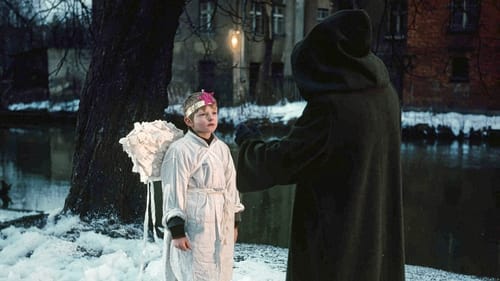
A psychological detective story about a police hunt for the murderer of young boys. The police comissioner ends up tracing the clues to his own home, where he has an adolescent son he has not been able to communicate with.

father
The house of a family of five is to be demolished due to the expansion of the city. The residents who are waiting to move are surprised by the progressive paralysis of their son.

kierownik restauracji

prezes
The young Kuriata takes the position of the secretary of the City Committee in Grodów, where a corrupt clique ruled for many years. Kuriata begins to introduce competent people to managerial functions, which is enthusiastically received by workers who want changes for the better.

Pleban Walerian Łazanka z Charłupi, świadek przed sądem
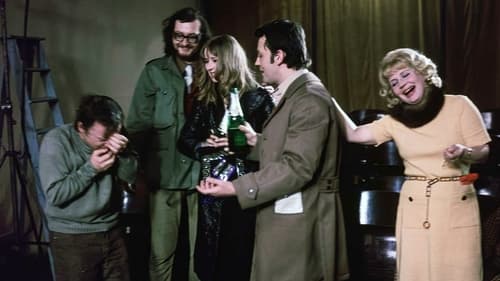
The main hero obsessively wants to become an actor. The would-be actor fails two entrance exams to the state acting school and has a nervous breakdown. Eventually he commits himself to the mental institution where patients are rehabilitated by doing some artwork. He refuses to paint but does some acting. He participates in a play where a lead, playing Oedipus, actually blinds himself. Out of the institution he has dreams of killing his father, but finally seems to be ready to start over again and either act without the state license or take another job.
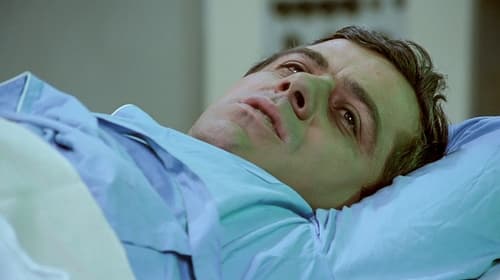
Zbigniew Woźniak
A biology professor, Adam, after several dizzy spells, enters a hospital for observation. He is a loner and a serious-minded man, who dislikes any display of emotions. He spends three months in the hospital while being tested. After observing patients and hospital routines around him from a distance, he learns that he will need a kidney transplant. Meanwhile his personal and professional life is falling apart: he refuses his wife's offer to donate the kidney for him; the scientific problem he was working on has been solved elsewhere. In the end Adam cracks under the prolonged pressure, waiting for the sound of an ambulance bringing a moribund patient whose kidney may be used for the transplant.

(as Z. Malawski)
Jaruga, the head of the local Security Office, cannot liquidate the "Boruta" unit. Most likely, he has his man in the UB. In order to unmask him and liquidate the unit, Albert, an employee of the UB, acting in complete conspiracy, arrives.
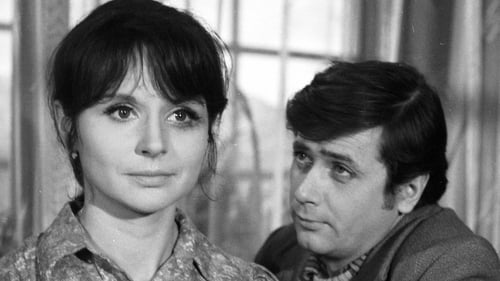
patolog; nie występuje w napisach

uczestnik przyjęcia u Szymgałów (nie występuje w napisach)
25-year-old Anna works in the laboratory of the Lodz textile factory. She lives with her mother and recently married husband. Her life collapses when a stranger appears, looking for a daughter who has disappeared during the war.

porucznik Hans Wolf

Milicjant
The former owner, a German, shows up on a farm belonging to the Poles settled there.

[obsada aktorska]
After a disaster in the mine, Łopot, a technician, protects the perpetrator. He soon faces a moral dilemma.

Adventures of a two little girls kidnapped from their families.

A young boy and girl travel in a strange car and encounter various objects which come alive to help them. Eventually they leave the Earth altogether and visit a strange, new planet.

Printer
Sampson is one of several Andrzej Wajda films harking back to his youth during the Nazi Occupation of Poland. Many of these concern not only the struggle between good and evil, but also between passive and impassive. The hero is a Jewish youth. He, like his family, has always been silent and undemonstrative in the face of prejudice. Now he stands up for his right to survive, and in so doing represents the fighting spirit that culminated in the 1943 Warsaw Uprising. It was originally titled Samson, but re-spelled as Sampson upon its American release to avoid confusion with a sword-and-sandal epic of the same name.
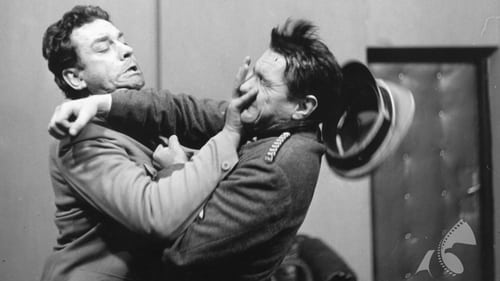
Fram is in a German POW camp where brutal, cold-hearted Gestapo officers like Weber or Von Steinhagen terrorize and execute their Polish prisoners. One day Fram sees a way to escape the camp and he takes it, heading out to find his fellow resistance fighters.
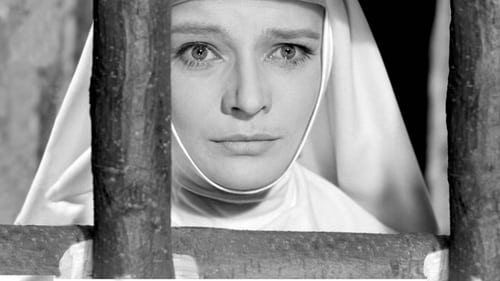
Exorcist
A priest is sent to a small parish in the Polish countryside which is believed to be under demonic possession and there he finds his own temptations awaiting.

milicjant
A quarry worker falls in love with a practicing doctor.

mężczyzna w hali targowej (nie występuje w napisach)
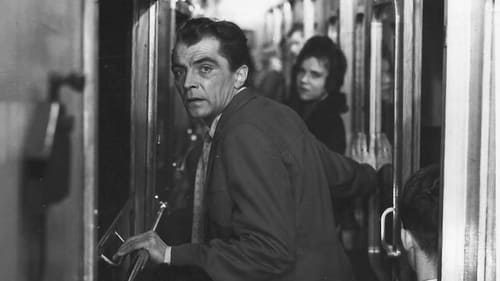
Milicjant
Two strangers, Jerzy and Marta, accidentally end up holding tickets for the same sleeping chamber on an overnight train to the Baltic Sea coast. Also on board is Marta's spurned lover, who will not leave her alone. When the police enter the train in search of a murderer on the lam, rumors fly and everything seems to point toward one of the main characters as the culprit.
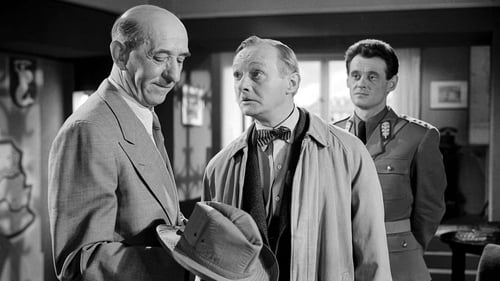
milicjant w cywilu obserwujący lokal Felusia (nie występuje w napisach)
Anatol Kowalski is an old man who works in a bank and loves his old-fashioned hat. One day the hat gets lost and Anatol decides to buy a new one.
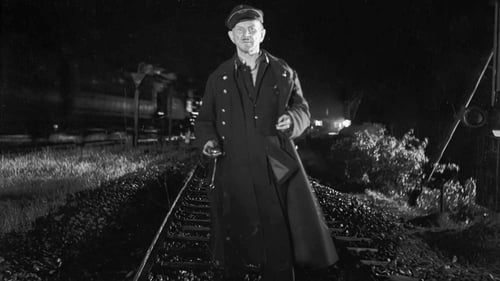
In 1950, at night, a passenger train kills a man on the tracks. He is Orzechowski, an engineer since 1914. An inquiry immediately follows. Testimony takes the form of flashbacks. Tuszka, the station master, believes Orzechowski was a saboteur; at least one on the inquiry panel agrees. Zapora, the young engineer on the train that hit Orzechowski, gives more complicated testimony about the dead man - stiff-necked, proud, imperious, critical of Zapora and other younger workers. The signalman at the crossing where Orzechowski died also testifies. Can the panel arrive at the truth in a world where workers unite, inferior coal is a badge of honor, and the old order is suspect?

Worker (uncredited)
With the second part of his Cellulose Diptych, award-winning director Jerzy Kawalerowicz returns to protagonist Szczesny, now a full-fledged, middle-aged communist militant in pre-war Poland. Based on the writings of Igor Newerly, Kawalerowicz's epic chronicles the romance between Szczesny and the charismatic Madzia, as the ill-fated pair fall in love amid the social and political upheaval of their homeland.

















